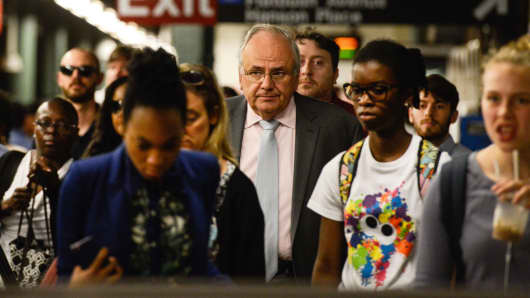There are other signs that the market is changing.
Glassdoor, a site that helps connect workers with jobs and provides information and working conditions and salaries, has seen a significant drop-off in job postings this year. Whereas the first quarter usually sees about a 5% to 15% increase over the previous year, 2019 has been flat.
"I think that's quite unusual. Digging into sectors behind it, it's fairly broad based," said Andrew Chamberlain, Glassdoor's chief economist. "The economy is flashing a yellow light but not a red light. This is something I think it's time to just watch closely."
Employers trying to overcome that skills mismatch are using various strategies.
Middle-market companies, for instance, are focusing on retaining current employees with an emphasis on training them to do the kinds of jobs that are in demand and in other times might go to better-skilled workers brought in from the outside, according to a recent study by SunTrust Bank.
The survey found 46 percent of respondents concerned with attracting and retaining employees. When discussing strategies to keep workers, 45 percent say they increased wages, 43 percent provided better benefit packages, 36 percent came up with more flexible working arrangements and just 24 percent brought in outside workers that needed training.
"We're seeing people get really creative with how they make sure they have the right team on the field. It's no longer just about going out and trying to find it," said Jason Cagle, SunTrust's head of commercial banking. "People have pivoted their thinking: How do we make sure we don't lose anybody? How do we invest in our own teammates?"
Cagle said companies including SunTrust in markets like Summers' Dallas are coming up with ways to retain workers and are not necessarily bringing in new hires as technology continues to grow and the demand for more sophisticated skills increases.
"We spend an incredible amount of time investing our teammates in leadership development, cross-training across different areas of the bank," he said. "That's just a very different dynamic than years ago."





